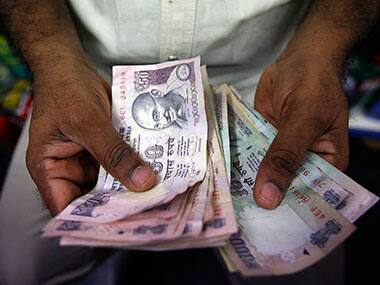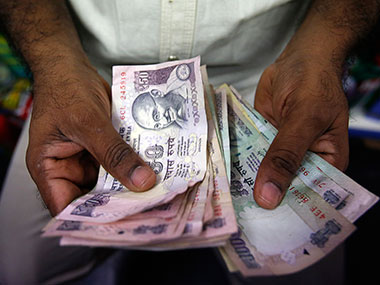On 19 August, the rupee recorded its biggest single day fall in a decade against the US dollar. The government responded by banning the duty-free import of flat screen televisions by air travelers. The Finance Ministry believes that imposing duties on such “non-essential” items will help reduce the gaping current account deficit. Unfortunately, the biggest part of the current account deficit of around $80 billion (annually) is made up of the import of ’essentials’ like oil and coal; and commodities that have been rendered essential by macroeconomic mismanagement, such as gold, viewed by ordinary Indians as the only ‘safe’ asset as the economy sinks.
In the circumstances, banning the duty free import of flat screen televisions, is mere symbolism, at best a populist signal of taxing ‘rich’ Indians at a time of crisis, at worst a blundering decision of a clueless government. Politics, of course, loves symbolism. It is so much easier than addressing the hard fundamentals. In fact, the precipitous decline of the rupee in the two months is just a symbol of all that is wrong with India’s macroeconomy.
The political class, both government and opposition, is suddenly agitated about the decline in the value of the rupee vis–vis the dollar. It didn’t seem as agitated over the last three years when the rupee was losing its value domestically with an annual inflation rate of over 10 percent. If politicians had agitated about persistent inflation like they have about the exchange rate, they would not have had to worry about the exchange rate at all. The largely economically illiterate political class failed to foresee that the yawning gap between inflation in India and inflation in other countries like the US, would eventually force the rupee to depreciate.
[caption id=“attachment_1046871” align=“alignright” width=“380”]
 Reuters[/caption]
Reuters[/caption]
The pouring in of easy money from the US, in the form of Foreign Institutional Investment in the stock markets, just delayed the day of reckoning for the rupee. Time is now up.
Instead of fretting about the rupee, the government should have allowed it to find its market-determined value. Instead, by imposing panic anti-market measures like import duties on gold and capital controls on Indian residents, the government has sent the rupee sliding below what might have been a reasonable equilibrium. The rupee is overshooting its bottom, because the government is meddling with market forces that it simply does not have the might to fight.
It hasn’t helped that the opposition, led by the BJP’s presumptive Prime Ministerial candidate, Narendra Modi, has seized on the decline of the exchange rate of the rupee to pillory the government. Symbolic comparison with the exchange rate of 1947 makes for good populist politics, but has no economic basis. The government needed to counter the opposition’s fallacious comparison and make hard decisions. But it chose ineffective symbolism.
The government has only one choice. It needs to come clean on its mismanagement of the macroeconomy, primarily the huge fiscal deficit and runaway inflation. It then needs to address economic fundamentals: permitting the mining of domestic coal on a fast track basis would do more to help the current account deficit than banning television imports. At the very least, it needs to allow market forces to address the fundamentals: if the rupee is allowed to fall, exports will rise and imports will fall. But for the necessary adjustment, it must fully liberalise the highly subsidised domestic prices of oil products. Otherwise, the fisc will bear an additional subsidy burden of currency depreciation and the consumption of India’s biggest import will not fall.
Political symbolism may fool some voters, but it will not fool the markets. In the end, politics always loses its battle with economics.
)